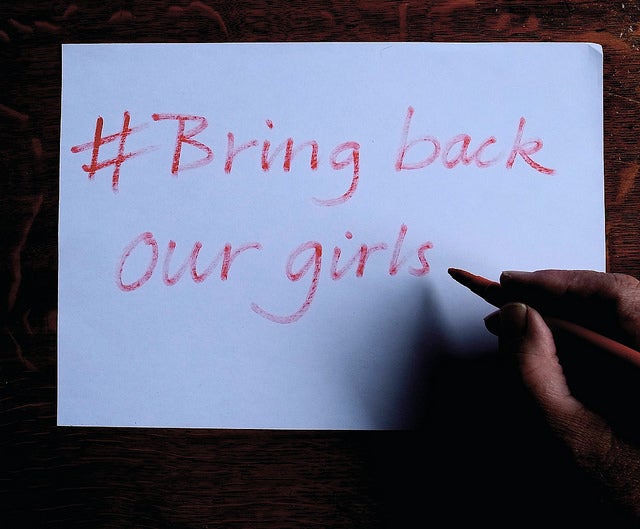
The international community has reacted with outrage to the news of the abduction of more than 200 girls in Nigeria by the extremist group Boko Haram. One month since the kidnappings, as the Nigerian government searches for the best course of action to “bring back our girls,” this tragedy continues to raise several questions. How could more than 200 hundred people go missing in a country as populous as Nigeria? Who are the Boko Haram? And what can be done in Nigeria to prevent the spread of violent extremism?
To better understand the context on the ground, we spoke with Aspen Institute Africa Leadership Initiative/West Africa Fellow Nuruddeen Lemu, who is the Welfare Projects Inspector for the Islamic Education Trust based in western Nigeria.
“A lot of things are now going under the name of Boko Haram, but in fact they are probably not one coordinated group,” Lemu said. He describes the urgency of making major improvements to Nigerian social welfare and education systems in order to stem the spread of religious terrorism. “Even if we try to solve this present problem, the social context that it created just continues,” he said.
Intelligence gathering in the abduction of more than 200 Nigerian girls:
“We are being told that Boko Haram is responsible, but which Boko Haram? We know that Boko Haram has actually been split into many factions. Unless we are able to determine exactly who is behind this, it is very difficult to know what we are up against. Without a diagnosis, one doesn’t know how to prescribe. What makes this really difficult are the very poor relationships between the security services and local intelligence on the ground.
Even logistically this is confusing. Nigeria is a country that is so populated, that you can hardly travel anywhere in the country for a distance of two kilometers without seeing somebody. It’s unimaginable that you could take 50 girls, [much less] 200 or more, without a farmer or land owner knowing something about it. There are many reasons to believe that these people didn’t just kidnap as an end in itself, but as a means for negotiation.”
The development of Boko Haram:
“The Boko Haram group has evolved. Initially they were a little like the Amish group in America, they just didn’t want to have anything to do with mainstream society. They were very cynical with education and all that comes with it, but peaceful. They viewed the Nigerian society as being corrupt and believed that the culprit for this was the education system. Boko Haram had a bigger mission to improve society by deconstructing the establishment.
But after 2009, when a lot of their members were brutally killed, they started to seek revenge and employ violent methods. They saw the violence from the security forces as a confirmation of how bad and oppressive the system was, and believed that peaceful talks would not work.
Activities like robbing banks, killing children, [and] kidnapping women are things that are not part of the original Boko Haram ideology. So we really don’t know exactly who we are talking about when anything is done in the name of Boko Haram. Now you can’t even link anything they are doing with the religion, as much of what they are doing goes against what the group originally stood for. The current groups are simply using religion as a convenient tool.”
How terrorist groups like Boko Haram have been able to spread:
“Because of the levels of corruption in Nigeria today, many people just see hopelessness. It is this hopelessness that makes young people feel [they] must do something, and when you get a charismatic leader under these types of circumstances, it is easy to convince young people to take a radical position.”
The importance of engaging with radical groups:
“Before the killings in 2009, my organization, the Islamic Education Trust, engaged in dialogues with people who espoused these extremist beliefs. The old Boko Haram were people you could sit face-to-face and talk with. Unfortunately, over the last five years, it has become very dangerous for anyone to even say they knew any Boko Haram members, because then the security forces were after you for more information. I had a colleague who was held in police custody for about two months, for example. It is really unfortunate because we have now reached a point where we can’t talk to anyone who holds the Boko Haram-type extremist beliefs safely.”
How Nigeria can deal with religious terrorism moving forward:
“There is the prevention side and the cure side. On the prevention side, a lot has to be done to handle the dilapidated educational system as well as to improve general social welfare. The type of hopelessness we have today creates a context that allows for radicalism to breed and fester. The state governments are critical here as they really hold the primary responsibility for education, healthcare, job creation, and agriculture. Even if we try to solve this present problem, the social context that [has been] created continues.
On the cure side, [the Nigerian] government needs to lessen the heavy-handed way they are dealing with terrorism. Yes force is always needed, but this really needs to be used as a last resort. They need to focus on winning the hearts and minds of people first. Unless the underlying causes related to poverty are addressed, terrorist groups like this will be able to continue to prosper. There are so many countries around the world that have been through so much worse and have recovered, so we are optimistic that there is light at the end of the tunnel. While the pressure is on government to do what needs to be done to resolve the current situation, this needs to be paired with more pressure to clamp down on corruption and improve social welfare systems.”

